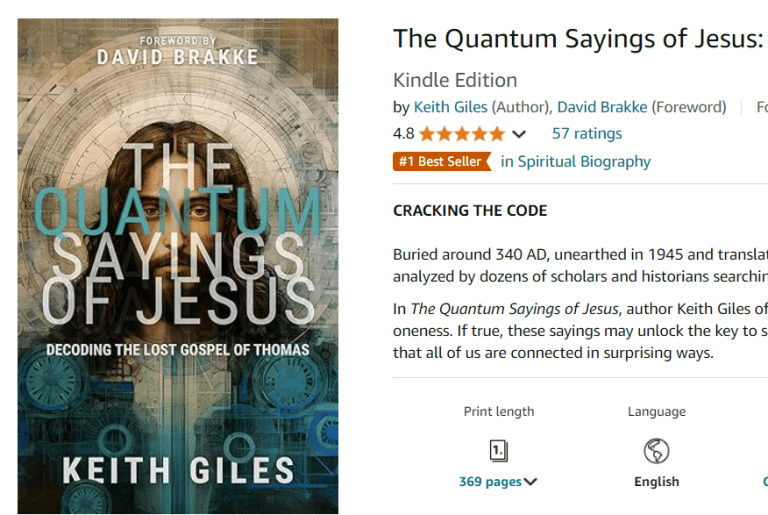
As I sip my second cup of coffee, I’m reminded of how often we overlook the radical nature of Jesus’ teachings and how they invite us to break free from cycles of selfish desire.
Let’s explore together how Jesus exemplifies self-giving love and empowers us to live differently.
Mimetic Desire: The Root of Our Struggles
Have you ever noticed how much of our striving comes from wanting what others have? René Girard’s concept of mimetic desire explains this perfectly. We’re constantly imitating each other’s wants, creating competition, conflict, and ultimately, cycles of envy and violence. Think about it—how many of our desires are truly our own?
In fact, most of the Ten Commandments are essentially pointing out our biggest problem as humans: Our desire for what others have.
We covet our neighbor’s possessions. We commit adultery because we want our neighbor’s spouse. We are driven to violent actions because of our desire to have what others possess.
But, while the Ten Commandments target our mimetic desires as our core problem, it can only tell us to stop doing it.
The problem is, we can’t stop doing it. Because to be a human being is to mimic the desires of others. We’re helpless to stop being human in this way.
So, when Jesus steps into this human predicament he decides to subvert the entire system. He refuses to participate in the tit-for-tat game of desire, showing us a new way: self-giving love.
When he invites us to “follow me”, he’s giving us the opportunity to redirect our mimetic desires.
Jesus’ Self-Giving Love: A Revolutionary Model
Throughout the Gospels, Jesus demonstrates a love that seeks the good of others over self-interest. Consider the Sermon on the Mount: “If someone slaps you on the right cheek, turn to them the other also” (Matthew 5:39). This isn’t passivity; it’s a radical invitation to break the cycle of violence and competition.
Think about the cross. Jesus’ willingness to endure suffering for the sake of others is the ultimate example of self-giving love. He doesn’t fight back. He doesn’t seek revenge. Instead, He absorbs the worst humanity has to offer and responds with forgiveness: “Father, forgive them, for they do not know what they are doing” (Luke 23:34).
Reversing Mimetic Selfishness
Jesus’ life and teachings reveal a new path, one that frees us from mimetic selfishness and empowers us to share rather than desire. This is more than a moral example; it’s an invitation to participate in a divine way of being.
When we grasp for things—status, possessions, recognition—we’re often driven by the fear of scarcity. But Jesus shows us that in God’s kingdom, there’s enough for everyone. He multiplies loaves and fishes. He celebrates the prodigal’s return without diminishing the father’s love for the elder brother. He washes the disciples’ feet, demonstrating that greatness comes through service.
The Parable of the Loaves and Fishes
I can’t help but reflect on one of the most famous miracles in the Gospels: The Feeding of the Five Thousand. It’s a story we’ve heard countless times, but today, I want to invite you to see it with fresh eyes.
What if this miracle wasn’t just about supernatural provision? What if it’s a powerful lesson in radical sharing, meant to inspire us to do the same?
The Setup: A Problem of Perceived Scarcity
The story begins with a crowd of thousands gathered to hear Jesus teach. As the day wears on, the disciples grow concerned. “Send the people away so they can go and buy food,” they urge. The disciples see the situation through the lens of scarcity: there’s not enough food here, so everyone needs to fend for themselves.
But Jesus flips the script. “You give them something to eat,” He says. Can you imagine their reaction? They must have looked at their meager supplies—five loaves and two fish—and thought, “How could we possibly feed so many with so little?”
The Miracle of Sharing
Here’s where the story takes a surprising turn. Jesus takes the only food he has at hand. It’s barely enough for himself and his twelve disciples. But, instead of hoarding it, he takes those loaves and fish, gives thanks, and starts giving them away to everyone else.
Let’s pause for a moment and consider another possibility: What if the real miracle was in how Jesus inspired the crowd to share?
Think about it. In a crowd that size, it’s unlikely that only one boy brought food. People probably had small amounts tucked away, but fear of scarcity might have kept them from sharing. Jesus’ actions—His blessing of the loaves and fish and His confidence in God’s abundance—may have broken through that fear.
Seeing his example, the crowd might have been moved to open their own hands and share what they had. And in the act of sharing, there was more than enough for everyone.
What This Means for Us
This interpretation doesn’t diminish the miraculous nature of the story. If anything, it highlights a deeper, more transformative kind of miracle: the breaking of our selfish, scarcity-driven mindset.
Jesus shows us that when we follow his example of radical sharing, we can create a community where everyone’s needs are met.
Lessons in Radical Sharing
- Trust in Abundance: Scarcity is often a lie we tell ourselves. Jesus’ example reminds us that we are all human, and we all belong to one another.
- Be the First to Share: Someone has to take the first step. Jesus didn’t wait for others to offer their food; He started with what was available. His actions sparked a ripple effect. What small act of generosity could you start today?
- Community Over Individualism: In a culture that often prioritizes personal success, this story challenges us to think communally. True abundance is found not in hoarding, but in sharing.
Practical Applications
- Share Your Resources: Whether it’s money, food, or time, look for ways to share with those around you. Start with your immediate community.
- Encourage Generosity: Talk openly about the joy and freedom that comes from sharing. Your example might inspire others to do the same.
- Challenge the Scarcity Mindset: Next time you’re tempted to hold back out of fear, remind yourself of the feeding of the five thousand. Trust that there will be enough.
A Parable of Sharing
The feeding of the five thousand is more than a parable about food; it’s a story about the power of radical sharing. Jesus didn’t just meet physical hunger that day; He addressed the deeper hunger for connection, trust, and community.
And the best part? That miracle is still happening today, every time we choose to share.
Empowered to Share
Following Jesus means embracing this countercultural way of life. Instead of seeing others as rivals, we’re invited to see them as brothers and sisters. Instead of clinging to what we have, we’re called to share generously.
This shift isn’t easy. It requires us to confront our fears and trust in God’s abundance. But as we practice self-giving love, we find that it’s liberating.
We’re no longer enslaved to the endless cycle of mimetic desire. Instead, we experience the joy of living in harmony with others and with God.
Practical Steps to Embrace Self-Giving Love
- Examine Your Desires: Take time to reflect on what you’re chasing. Ask yourself, “Why do I want this? Is it coming from a place of love or competition?”
- Practice Generosity: Look for opportunities to give—your time, resources, or attention. Start small and notice how it transforms your relationships.
- Seek Reconciliation: If you’re caught in conflict, take the first step to make peace. Remember, Jesus calls us to love even our enemies.
- Trust in God’s Abundance: Meditate on passages like Matthew 6:25-34, where Jesus reminds us not to worry about tomorrow. Trust that God will provide.
Closing Thoughts
Jesus didn’t just teach self-giving love; He embodied it. By following His example, we can break free from the cycles of mimetic selfishness and live in a way that reflects God’s kingdom.
This isn’t easy, but it’s the path to true freedom and joy.
**

You’re invited to join me for the new weekly online course I’ll be co-hosting with artist/musician Angie Von Slaughter starting Wednesday, January 8th.
Are you a creative person who struggles to find new ideas? Or maybe you’ve got too many ideas but you just don’t know how to get started?
This course is a Live Online Zoom call where we gather with other artists to explore creativity and share exercises and prompts to help us unlock our creativity together.
Register now and save 20% off for a limited time only>

The newest book from Keith Giles, “The Quantum Sayings of Jesus: Decoding the Lost Gospel of Thomas” is available now on Amazon. Order HERE>
Keith Giles is the best-selling author of the Jesus Un series. He has appeared on CNN, USA Today, BuzzFeed, and John Fugelsang’s “Tell Me Everything.”
He co-hosts The Heretic Happy Hour Podcast and his solo podcast, Second Cup With Keith which are both available on Spotify, Amazon, Apple, Podbean or wherever you find your podcast fix.













